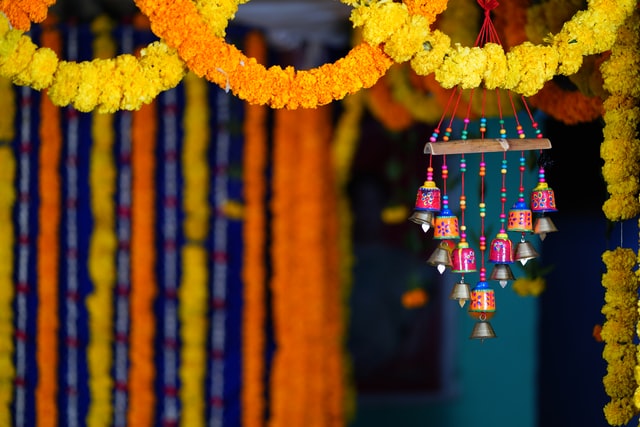Discussing Women’s Issues During a Tea Break in India

During my time in India, I had the distinct pleasure of living in Udaipur, a small city in northwest India. I worked at an NGO along with three other Americans who were working with a group of Indian women. Their intention was to create a business program to support sustainable economic growth on a microcosmic level, but inspiration led them down another path instead: one determined to address women’s issues—particularly that of feminine hygiene.
Using fabrics originally purposed for creating small handbags, Stephanie, Rachel, and Nat decided to create reusable menstrual pads. The idea made sense economically, environmentally, and most importantly, hygienically.
Rachel and Stephanie explained their business plan while the men shifted in their seats, unsure of why they were being told exactly how the female body works and why feminine hygiene mattered.
Even though I was not a big part of the business portfolio planning, I was present for the introduction of the product. It occurred in a small conference room with ten Indian men sitting around a table in the center. There was one Indian woman by the name of Asha* who had been helping “the Americans,” as they were called, with the development of the idea.
Asha was the kind of woman you wish every person in India could speak with. Her mind moved quickly, and we all tried desperately to follow her thoughts and words. She had hair that flowed down past the backs of her knees that was kept in the most perfectly tight braid. She wore a bright orange and pink saree and had the biggest dark brown eyes I have ever seen. It was as if her eyes had seen it all, and I truly believe that if there was a quick and easy fix to the way women are viewed in India, it could all be solved with her kindness and clear view of the world.
Unfortunately, things don’t work that easily.
Discussing Women’s Issues During a Tea Break in India.
Rachel and Stephanie explained their business plan while the men shifted in their seats, unsure of why they were being told exactly how the female body works and why feminine hygiene mattered. Amazingly, neither of them even blinked during their explanation, or when they were harshly questioned. Asha spoke of the everyday health issues of women using straw during their “time of the month” because there was nothing else. Everyone winced, seemingly bothered with the reality of the situation.
The discussion carried on, in spite of the entire room wishing the conversation could end.
I so distinctly recall this question: What about the women in the villages who use a drying line? Should these materials be outside for the world to see? And I recall the answer: Yes. Then the men needed a tea break.
Check out Pink Pangea’s Writing, Yoga, and Meditation Retreats.
I’m not convinced that my friends realized the magnitude of the discussion at the time. I’m not sure they knew that they were speaking on behalf of women all over India who would advocate for themselves if only they were given a seat at the table.
In a place like India, everything feels paradoxical. It’s warm, but it’s harsh. It’s chaotic, but it’s calm. It’s beautiful, but it holds some ugly truths. It’s modern, but the traditions are antiquated. The truth is that the men at the table did listen. They drank their tea and they listened to why women should not feel embarrassed, ashamed, or afraid of their bodies. Then they asked another question.
By acknowledging and addressing feminine hygiene, how are we helping?
I’m not sure they knew that they were speaking on behalf of women all over India who would advocate for themselves if only they were given a seat at the table.
As an NGO, they wanted numbers and statistics. They wanted tangible results. The status of women in India is more qualitative, harder to prove. They needed to ask these questions because they wanted progress. Despite my assumptions, I was shown that questions can be simply a means to an end, a way to understand each other.
For the record, the NGO did end up pursuing this plan, and it is still in effect. When I reflect on the time that I spent in India, there are some stark feelings that jump right back to the forefront of my mind: the discomfort that seems to last, the warmth that holds your heart, and the intensity that cannot be easily escaped. I vividly recall the colors and how they shocked me at first. Eventually, I came to believe that the whole world should sparkle in color the way India does. India requires little searching—the smells find you, the lessons find you, and eventually, the chaos in this country wins you over.
*Asha’s name has been changed for this story
Photo for Discussing Women’s Issues During a Tea Break in India by Unsplash.








